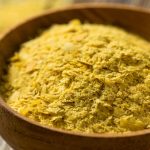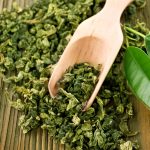People often assume veganism is healthier, so is vegan cheese good for you?
Vegan cheese is good for you. It typically has fewer calories than dairy cheese, however, often lacks the same amount of protein, vitamins, and minerals.
We’ll guide you through what you need to know about its nutritional value so you can determine how to implement it into your vegan diet.
Is Vegan Cheese Good for You?
Unlike dairy cheese, which is typically made from milk and little else, vegan cheese has lots of ingredients. The ingredients also vary from brand to brand, so, it’s hard to provide any overarching answers about whether vegan cheese is good for you or not.
In this case, when we say vegan cheese, we mean the cheese alternatives sold in grocery stores. This includes products by brands like VioLife, Koko, So Delicious, Field Roast, Daiya Foods; not recipes you might find online which are typically a cheese-like sauce made from cashews or nutritional yeast.
However, those recipes are generally quite healthy.
On average, a vegan cheese ingredients list will include the following:
- Water
- Modified Potato Starches
- Coconut Oil
- Coconut Cream
- Olive extract
- Salt
- Vegetable Glycerine
- Calcium Phosphates
- Maltodextrin
- Natural Flavouring
Some people see a long ingredients list and words they don’t understand and begin to worry. These kinds of ingredients are found in lots of foods (plant-based and not plant-based).
None of these ingredients are particularly concerning. For example, vegetable glycerine, which is typically an oil-like substance made from soy, palm oil, or coconut is actually pretty hydrating (source: Europe PMC). It’s even good for gut health (source: Western Pacific Region Index Medicus).
Calcium phosphates are common food additives. The amount you would be consuming from this cheese is quite small (source: MDPI).
Maltodextrin is fairly processed, it’s a powder made from vegetable starch. You would likely be consuming a small amount of this compound in vegan cheese. As it is common in other foods too, keep in mind maltodextrin is basically a sugar and may even alter the bacteria in your gut (Plos One).
While vegan cheese does not naturally seem to have a whole lot of nutritional value, the good thing is that it is often fortified with added vitamins and minerals, typically vitamin B12 and vitamin D.
It typically contains little to no protein either – so, non-vegans will not be gaining much if they’re thinking of switching for any purported health benefits (source: Nutritonix).

Is Vegan Cheese Better for You Than Regular Cheese?
How healthy something is cannot just be determined by looking at the calories, fats and sugars. Some low-calorie options can be nutritionally void.
Given that we need to consume a wide variety of vitamins and minerals for optimal health, sometimes the 0-calorie option or the lowest calorie is not actually the healthiest thing to put into your body.
Some people are concerned about calories and fats, while others will want the most nutritionally robust option available. This is why determining whether vegan cheese is healthy or good for you is not a straightforward answer.
An important thing to note is regular cheese is a decent source of protein, while vegan cheese often contains little to no protein. So, if you have replaced all your cheese with plant-based cheese, be sure to monitor your protein intake to make sure you are consuming enough.
Vegan cheese does, however, often contain less fat than dairy cheese.
Dairy cheese is an excellent source of calcium. It is typically also a good source of other vitamins and minerals like iron, riboflavin, B12, and vitamin A to name just a few (source: Nutrition Data). While vegan cheeses can be fortified with some vitamins, they rarely seem to match the nutrition profile of dairy cheese (source: Nutritonix).
Overall, it seems to have fewer nutrients, along with lower calories and fats.
Is Vegan Cheese Good for Weight Loss?
People often assume that vegan food is healthier by default. With that said, lots of vegan alternatives to foods or vegan junk food are still fairly unhealthy. So, veganism is not a free pass to eat whatever without worrying about any potential negative health implications.
In terms of weight loss, vegan cheese is often lower in calories and fats. For example, one slice of Violife can contain 60 calories, 4.5 grams of fat, and no sugar (source: Nutritionix). Meanwhile, an average slice of cheese can contain 110 calories, 9.3 grams of fat, and 0.1 grams of sugar (source: Nutritionix).
With that said, you should always read the ingredients list and nutrition label. There are dozens of vegan cheeses on the market, all with different ingredients so they will not all have the same amount of calories, fats or sugar. Don’t assume that because a few vegan kinds of cheese are lower in calories, they all are.
Lower calories do not mean there are no calories; you can easily overconsume vegan cheese, just like you might with dairy cheese.

Is Vegan Cheese Suitable for Kidney Problems or High Cholesterol?
Vegan cheese can be lower in fats – and saturated fats- than dairy cheese. It’s important to stress that the exact nutritional breakdown of vegan cheeses varies from brand to brand and product to product so you must always read the label.
With that said, a slice of Violife contains only 4.5 grams of fat, 4 grams of which is saturated fat. A slice of Daiya vegan cheddar contains 5 games of fat, 4 of which are saturated (source: Daiya Foods). This is lower than the 5.3 grams of saturated fat in an average slice of dairy cheese.
Four grams of saturated fat is still around 20% of the recommended serving per day, which is quite substantial. So, while vegan cheese can be a step in the right direction, it might not be best to just switch all your cheese to vegan cheese and call it a day.
I hope this answers any questions you might have about whether vegan cheese is healthy or unhealthy.
Now, turning our attention to the compatibility of dairy-free or vegan cheeses with the Paleo diet, are you curious about whether they can align with its principles? We’ve delved into this topic as well, offering insights that could reshape your perspective on cheese and dietary choices!





Comments are closed.